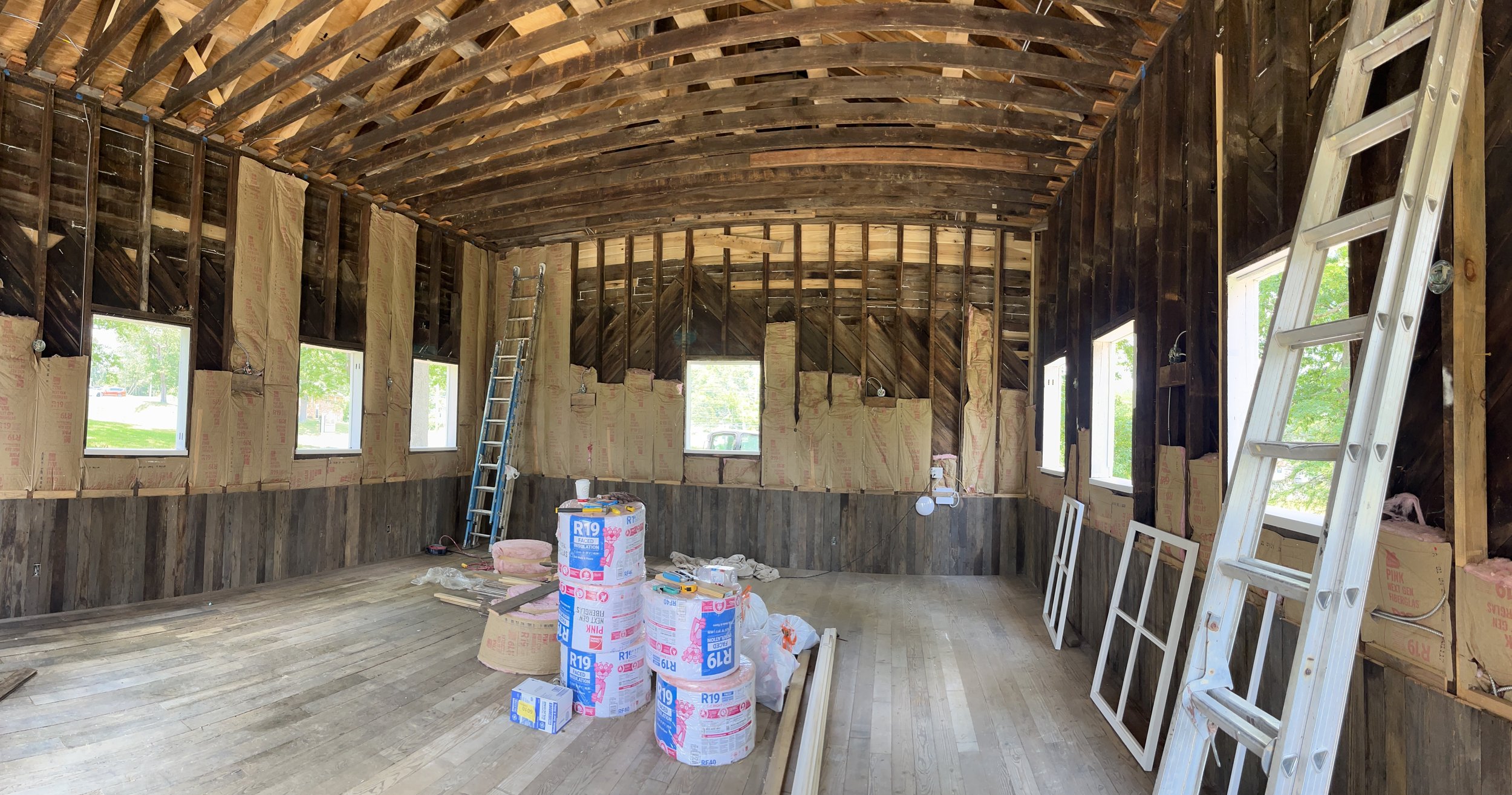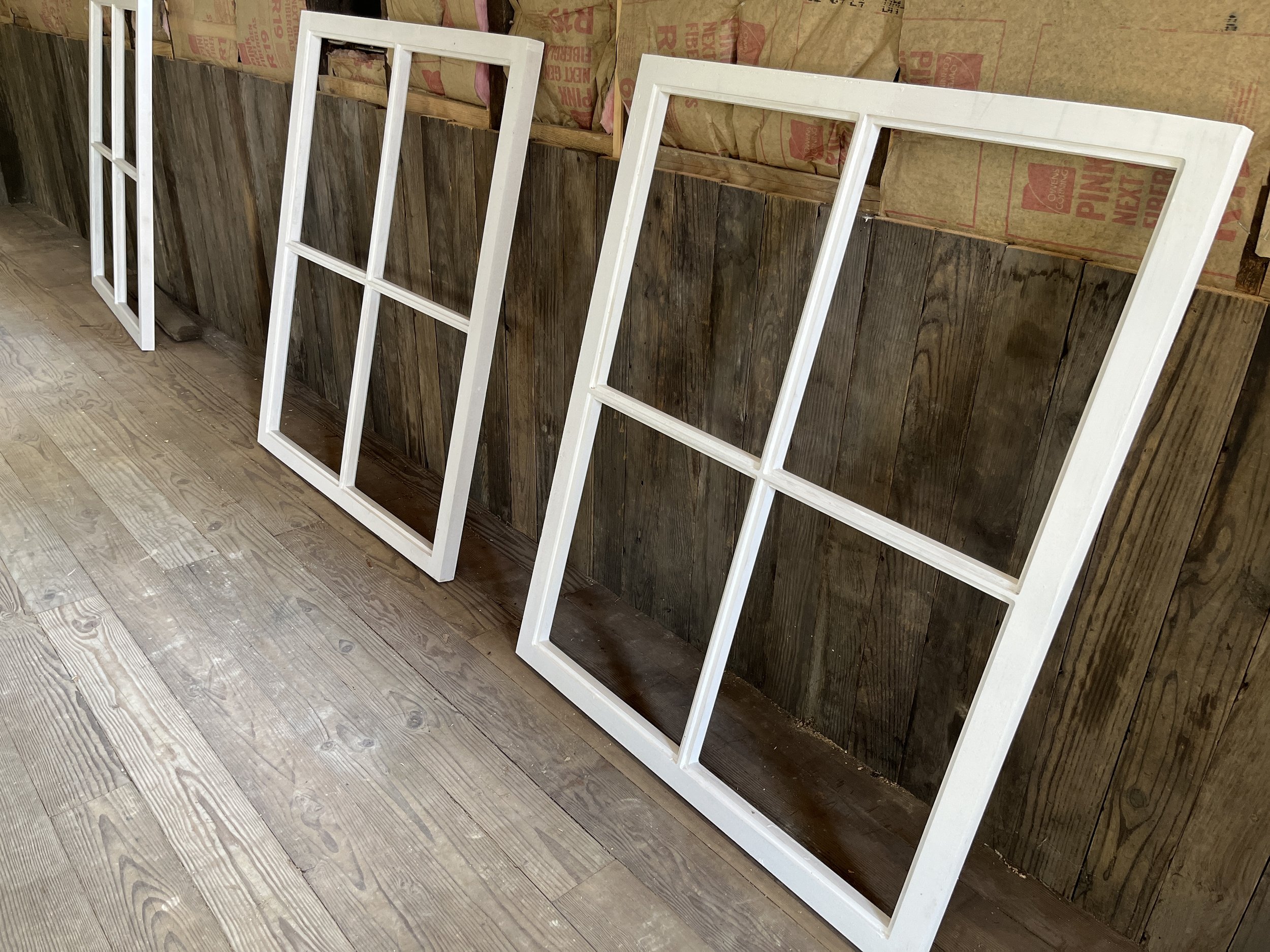Emerging From Ruin.
Before finding its new home, this humble structure was grayed and weathered, with weary bones twisting under the ravages of time. Yet through nearly a year of toil, the Bethel African Methodist Episcopal (A.M.E.) Church proudly reemerged.
Although it will no longer serve a congregation, its legacy as Garrett County’s only African American church lays the cornerstone for a forgotten culture that helped to shape and build a remote mountaintop community. Once the restoration work is complete, the 1900 structure will be renamed Bethel Center, a remembrance of African American families that dissipated as the A.M.E. Church congregation dwindled.
After serving as a sanctuary for two and a half decades in Oakland, Maryland, the church was relocated to a farm ten miles out of town in Pleasant Valley, an area known as home to the local Amish community and their family farms. For longer than it served as a church, it became a blacksmith and harness shop, and its rugged and gnarled exterior was a grim reminder the sacred church was nearing ruin. Over the ninety years serving as the shop, it eventually became as much a storage shed for accumulated wheelwright relics, harnesses, and tools of the blacksmithing trade. With the increasingly cramped quarters, fewer buggy repairs, and the building’s structural integrity on the brink, it was time to either tear it down or relocate it. Thankfully, the latter became its destiny.
An early assessment revealed less than half of the exterior siding was salvageable, requiring a sizeable amount of custom-milled lumber to replace and match what bravely survived nearly a century and a quarter. Area businesswoman Karen Meyers donated the poplar siding to help offset project materials costs. Modifications after first moving the building to Pleasant Valley swapped the original front door with a sliding door large enough to roll in a buggy. Without so much as one photograph as guidance, the single-door entrance was restored following designs similar to other small churches at the turn of the last century. Poor weather delayed painting the bare wood that further lay exposed for nearly a month. The freshly primed surface was a huge leap forward and brought sighs of relief to those close to the restoration project.
“We have waited a long time to get to this point,” Mayor Don Sincell commented. “There were so many phases of preparation needed before painting was even a discussion. It finally feels like completion is within our grasp.”
And indeed, it is. The mayor has set a public rededication date for September 23, 2024, a sentimental choice since it will be the very same day the church was first dedicated in 1900. A long list of invited guests includes Maryland’s 63 Governor, Wes Moore, who has taken an interest in the project and also happens to be the first African American to fill his position. Moore announced that the Maryland Commission on African American History and Culture and the Maryland Historical Trust have awarded 24 African American Heritage Preservation Program grants totaling $5,000,000 to Maryland nonprofit groups for the 2024 fiscal year. Bethel Center was among them. He also proclaimed 2024 as Maryland’s Year of Civil Rights during a launch event at the Banneker-Douglass Museum, Maryland’s official African American history and culture museum. Sincell anticipates an impressive turnout for the September event due to the increasing awareness and public support behind the restoration effort. The mayor and event planners will release details of the ceremony once they have been finalized.
Nestled among mature trees and perched over Maryland Highway, Bethel Center materializes in dappled light. There is still plenty to be done, including the installation of the replica window sashes and the interior finish work. The exterior will soon receive a final coat of white paint, preserving an important and symbolic piece of history for another generation.
When the restoration project began, little was known about the African Americans who once claimed the church as their own. Ongoing and extensive research, in cooperation with the Garrett County Historical Society, is weaving together a tapestry of people who left Garrett County between the 1930s and 1940s, taking with them their family legacies. Bethel Center will become a significant heritage destination and an armature onto which stories of African Americans omitted from local history may be rebuilt.
The Maryland Historical Trust African American Heritage Preservation Program, Community Legacy, Preservation Maryland, and the Daughters of the American Revolution (DAR) generously funded the relocation and restoration project.
The interior will be insulated and updated with electric lights. Although not authentic to the building, lighting will add functionality. Any original lighting would have likely been with oil lamps or gas fixtures.
Replica window sashes were custom-made to match the originals. Only one original sash survived.
A period-appropriate salvaged door will greet visitors. A deep grain reveals its age.




